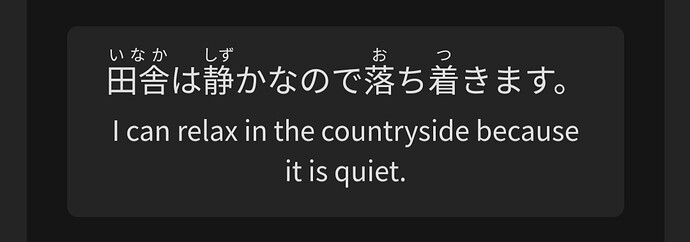Hello, this is probably a rather silly question, but I’d be grateful for some help understanding this grammar point, in case I’m missing a nuance!
On the page for about using ~て for “reasons and causes” (Verb[て] + B - Japanese Grammar Explained | Bunpro), one of the examples given is:
However, this doesn’t seem to follow the grammar point’s structure of [な] Adjective + で + Phrase, but rather a structure using [な] Adjective + な + ので + Phrase (as covered in the ので - Japanese Grammar Explained | Bunpro grammar point).
Is ので in fact a form of this use of て/で?



 ]
]